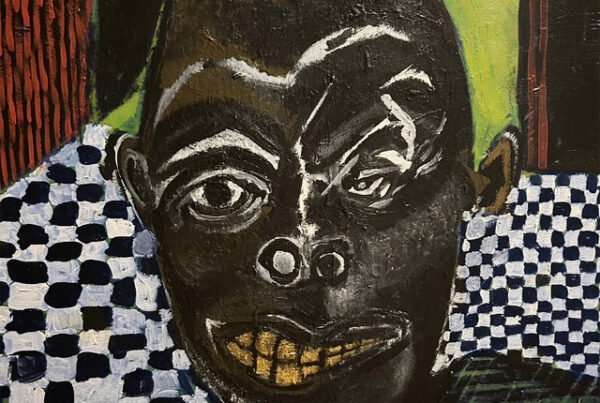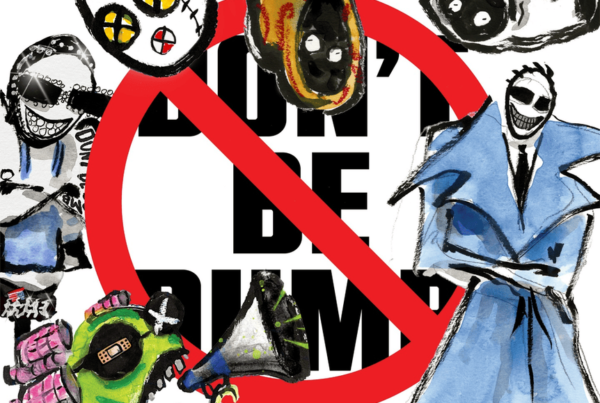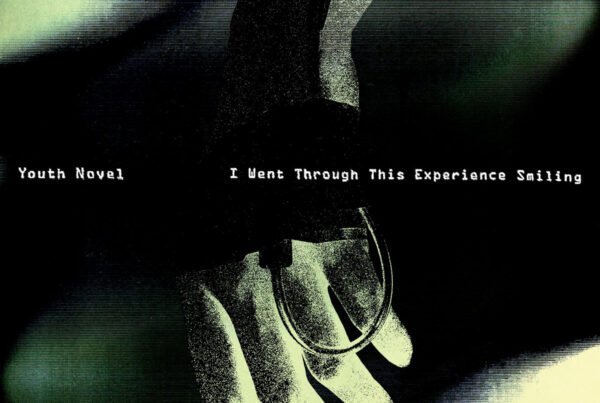As bleak as things are in the world today, Maruja‘s Pain to Power is a powerful reminder that love will truly prevail.
Release date: September 12, 2025 | Music For Nations | Website | Facebook | Instagram | Bandcamp
In case you already weren’t aware, there is a major clanker crisis that has been stealthily creeping into the music industry (what hasn’t been tainted by AI these days…) with the sole intent of sucking every last dollar from listeners that it can. While the endless ocean of music is plenty oversaturated with people trying to make the big bucks with the next viral hit, it is already difficult to discover authentic music from real artists. Factor in all the AI-generated slop padding playlists and fabricating streams and the good stuff continues to become even more diluted. Despite all that, I am honestly not at all concerned that the creation of genuinely great music will eventually cease to exist. Sure, there will be even more crap to sift through, but if you are truly passionate about finding real music, then you will find it. If anything, there is a silver lining, as these tumultuous times (the greatest understatement of all time) will only inspire more art of all forms. Smooth seas don’t make good sailors (and art) after all.
Cue Maruja, a breakout artist that is testament to the fact that new and beyond incredible music is still coming out and will for as long humans still walk this Earth. It wasn’t long ago when I was last discussing Maruja, as earlier this year they had released a phenomenal, fully improvised live performance EP (Tír na nÓg) that caught my ear and instantly made me a believer. Not even a new calendar year since then and they’re primed to drop their debut LP, Pain to Power. With this album alone, I can fully anticipate it putting them on the map and solidifying their status as a generational talent. Maruja is a name you’re going to be hearing a lot about in the coming years, mark my words.
In my previous review of theirs, I likened Maruja’s sound to that of Black Country, New Road but drenched in dark psychedelic jazz ala NEPTUNIAN MAXIMALISM. That musical chimera still exists although to a lesser extent on Pain to Power as the hallucinatory NNMM soundscapes aren’t as prominent this go around, but I’m sure that existed purely to Tír na nÓg being fully improvised and this record being a ‘proper’ record. Now, I only (re)mention BC,NR because I again want to emphasize that I fully expect Pain to Power will cause Maruja to explode in popularity as For the first time did for the respective band. All that being said and for as much as I truly enjoy BC,NR, Maruja’s debut is far more impressive and stunning.
You’ll come to realize fast that Pain to Power is equal parts pensive and aggressive. In regard to the aggressiveness, I don’t mean it as in downtuned, extended range guitars but rather how each band member is giving their absolute everything into the musical performance from start to finish; it isn’t about what you play but much rather how you play. “Bloodsport” immediately immerses you in the intense energy that will show itself at many points throughout the record, although this particular track is the most in-your-face example of it. Additionally, this intro track will acquaint you with the hypnotic, howling saxophone that is integral to their unique sound. It isn’t used as a mere accessory for a transient jazzy break or an obligatory ‘sexy solo’ (as that is all saxophones are apparently good for when it comes to modern pop/rock music). Maruja’s incorporation of the alto and baritone saxophones into their sound provides the record with its own unruly character, as it is a presence that wails and mourns in ways no guitar line or other instrument could replicate.
It is the longer form tracks in which Maruja’s mystique truly shines, allowing for the pensive nature of the music to fully unfold. Ever since their inception, they’ve shown nothing but masterful musical restraint and undeniable chemistry and that reigns even more true here. “Look Down On Us” starts off in typical Maruja fashion, but then progresses into this subdued, introspective ‘monologue’ that then evolves into an explosive jam outro. In this track (and in “Saoirse”), you’re given a brief moment of respite to fully take in the thought-provoking lyrics in a way that is impossible to ignore. The vocals plead for your attention and succeed in doing so with the profound message and the deeply moving performance. As this all transpires, the careening saxophone, mournful string accompaniments, and frenetic percussive work masterfully develop tension for an eventual explosive release.
“Born to Die” is a slow burner that closes out with the most Rage Against The Machine breakdown I’ve ever heard. “Zaytoun” into “Reconcile” is a phenomenal final movement, in which the former track is more of an interlude track of sorts reminiscent to the hauntingly psychedelic undertones of Tír na nÓg with howling vocalizations that swirl around as if they come deep from a troubled subconscious. “Reconcile” is yet another mammoth of a track that never fails to send chills up my spine as the final crescendo unravels. As the final note rings out, it feels as if I am awakening from a vivid dream, desperate to consolidate and put the details back together before they are lost to time; luckily you can just hit the play button and experience it repeatedly, unlike a dream.
Listening to Pain to Power feels less like pressing play on a recording and more like being pulled into a once in a lifetime type of live performance with how it is so emotionally provocative. What’s remarkable to me is that many bands with decades of experience and sprawling discographies could only dream of crafting a work this ambitious, this creative, and this flawlessly executed. In an era increasingly crowded by hollow, revenue-driven trends and AI-generated filler, Pain to Power stands as a reminder that authentic artistry not only still exists but continues to thrive in the hands of musicians who refuse to settle for anything less than their all. Maruja reveal themselves not just as an impeccably strong band, but as a generational talent whose impact will resonate far beyond this debut release, at least that is what my crystal ball tells me.






